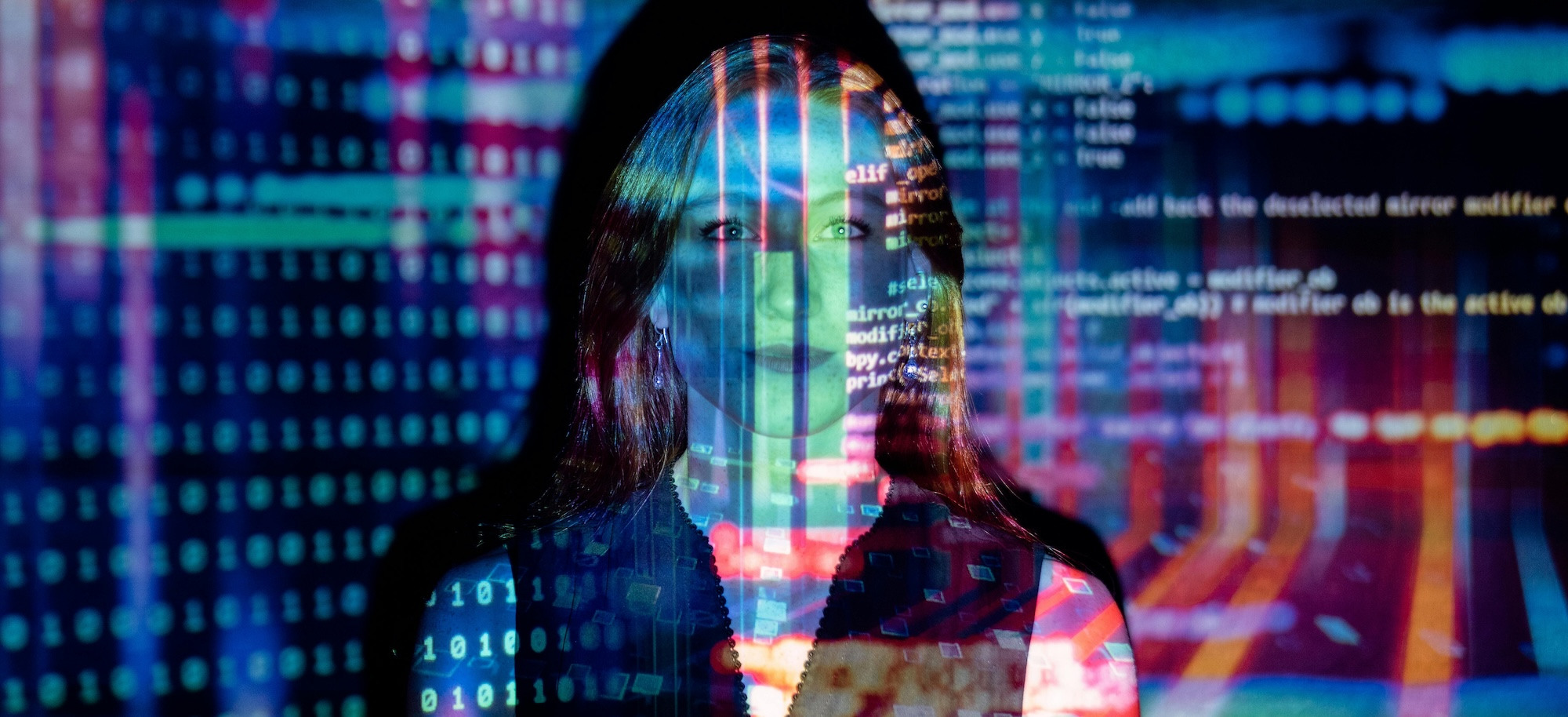Artificial intelligence (AI)-driven HR technology is transforming the workplace, providing powerful tools that are helping to reshape how HR operates and improve the employee experience.
AI in HR offers significant efficiencies for small and mid-sized businesses (SMBs), making it easier to streamline operations and improve experiences across the entire employee journey—from recruitment and onboarding to training and development. That said, it's essential to strategically integrate AI-powered tech tools with the guidance of experienced HR professionals.
“Aspects of AI, specifically predictive AI — which uses machine learning to identify patterns in past events and make predictions about future events — have been a part of HR functions for quite some time. But generative AI, involving the creation of content, will accelerate how technology interacts with the whole business and HR specifically,” states AON's “How Artificial Intelligence is Transforming Human Resources and the Workforce.” “To effectively harness the technology, HR leaders must ensure both their own teams and the wider workforce are prepared.”
In this article, our HR experts examine the potential impacts AI-powered technologies have on today's businesses, and we deliver actionable insights on the following:

How is AI used in HR technology?
Artificial intelligence (AI) is changing the landscape of human resources (HR) by streamlining processes, automating routine tasks, and providing data and analytics that help boost decision-making capabilities for SMBs. This frees up HR professionals to concentrate on strategic initiatives that help propel business growth and boost employee performance and morale.
According to a Society of Human Resource Management (SHRM) survey of 2,366 HR professionals, the top three focus areas for AI in HR technology include:
- Talent acquisition: 64%
- Learning and development: 43%
- Performance management: 25%
Here is how AI in HR technology is paving the way for HR professionals to advance all phases of the employee lifecycle:
- Recruiting: AI-powered technology allows HR professionals to prioritize strategic talent acquisition by automating repetitive recruiting functions. AI systems can efficiently scan job boards, assess candidate qualifications, and pinpoint individuals who align with job requirements. These tools can also create optimized job descriptions and advertisements designed to attract top-tier talent.
- Onboarding: AI-powered onboarding tools, such as a personalized video welcome program, help establish a positive and productive employer-employee relationship. These tools manage orientation, administrative tasks, and training, ensuring a seamless process for new employees and a more efficient onboarding experience for the company.
- Performance management: AI assists with performance management by supporting goal setting, feedback, and reviews while providing data-driven insights into workforce trends for leaders.
- Learning and professional development: AI tools help create personalized professional growth programs, including custom training and learning paths. They also identify skill gaps for real-time training improvements.
- Employee experience: AI-driven employee experience platforms foster a positive workplace culture through recognition tools that support awards, appreciation, and communication tools that provide an internal hub for company news, feedback, and sentiment surveys. Also, employee self-service tools that allow employees to set up and update account functions like direct deposit, benefits elections, or leave requests offer convenience.
- Employee retention: AI-powered tools identify disengaged employees through behavior analysis, allowing HR to implement targeted retention programs and reduce turnover.
- Offboarding: AI tech tools streamline offboarding by scheduling exit interviews, providing chatbot support, and managing sensitive transitions.
How does AI help HR in decision making?
Generative AI (or GenAI) models learn the patterns and structures within data and then use that knowledge to generate new content. Predictive analytics uses generative AI in HR to analyze past and present data to gather insights and apply that information to an “estimating model” to make future predictions.
AI-powered predictive analytics programs allow SMBs to probe data, gather insights about their workforce, and make decisions based on those insights.
For example, business owners can extract data from their systems, such as an employee experience platform, and run it through predictive analytics software or programs. HR professionals interpret the results to identify actionable steps and policies to influence specific areas, such as increasing employee retention, refining recruitment strategies, or improving employee engagement.
What are the ethical issues with AI in HR technology?
Business owners are responsible for securing and maintaining employee data privacy, which can be challenging in an environment with many cybersecurity risks. HR professionals are tasked with overseeing the protection of employees' sensitive data, ensuring compliance with applicable data protection, privacy, and breach laws, and monitoring any pending legislation.
“HR processes directly impact human lives and livelihoods,” states Talent Management Institute’s “Ethical AI: Navigating the Moral Landscape of AI-Driven HR.” “AI-based systems are therefore morally bound to the highest standards of transparency, fairness, and accountability. Failure to prioritize AI ethics risks compromising diversity efforts, infringing on privacy, perpetuating biases, and severely eroding trust… Ultimately, AI should serve to meaningfully augment human capabilities, not dominate decision-making arbitrarily.”
Challenges of AI in HR include:
- Privacy and security issues: AI models require large amounts of sensitive HR data, which makes them vulnerable to cyberattacks even with strong security. HR teams can work with IT department and cybersecurity professionals to implement strong cybersecurity measures, such as anti-virus and anti-spyware software programs, network encryption controls, strong and secure password protocols, and an employee records storage system that adheres to all applicable state and federal privacy laws and safeguards the information against internal release and cyberattacks. It’s also essential to get informed consent from employees before using their data and to communicate to them how AI tools your company uses to analyze their information inform HR decisions.
- Bias and discriminatory risks: Algorithms trained on biased data can perpetuate and amplify existing societal biases based on factors like gender, race, age, and disability. Fairness metrics should be built into an AI algorithm’s design. HR should conduct regular audits for discrimination and analyze outcomes across demographic groups to identify and correct disparities. If not, it can lead to unfair or discriminatory practices and non-compliance with discrimination laws that protect workers.
- Loss of “human” touch: AI tools streamline HR processes and improve the user experience, but they have limitations. They cannot replicate the depth of human interaction, such as interpreting nonverbal communication, addressing complex employee questions, or providing empathetic responses.
- Overreliance on AI: AI should supplement human judgment, not replace it. Overreliance on AI for analysis and decision-making can dehumanize HR, weakening the personal connection with employees. This can lead to decreased critical thinking, loss of essential skills, inflexibility, and heightened vulnerability to AI errors and privacy breaches.
“AI systems should support and enhance human decision-making rather than replace it,” according to My HR Future’s “Ethical Considerations in Using AI for HR.” “That is why HR must retain the ability to intervene in AI processes, particularly in high-stakes situations such as hiring and performance evaluations.”
Can HR be replaced by AI?
Along with the excitement that accompanies the rollout of any new ground-breaking technology, there are concerns and even fears about its societal, economic, and ethical impacts, among others. As AI-powered tech tools become more sophisticated, there is a fear that it could replace human workers in various industries and you may be wondering – is AI a threat to HR teams and the profession?
Rather than replacing HR, AI will increase the demand for HR professionals as organizations navigate the challenges and opportunities presented by AI.
The relationship between HR and AI is intertwined. AI-enabled tools are changing how HR is delivered by automating tasks, streamlining processes, and enriching all stages of the employee lifecycle. Conversely, HR professionals will play a key role in facilitating each organization's introduction and adaptation to AI technologies and the impactful change it will bring to the workplace.
According to Nailted's “The future of HR: Will AI replace Human Resources?”, following are additional reasons to believe AI will not replace HR:
- Human touch: AI can assist HR processes but cannot replace the human element. Emotional intelligence and empathy are vital for employee engagement, company culture, and conflict resolution, and they remain uniquely human capabilities.
- Decision-making: AI enhances decision-making with robust data analysis, but complex situations require human judgment. HR's experience, intuition, and understanding of organizational dynamics fill the gaps where AI falls short.
- Ethical considerations: HR professionals are crucial for ensuring ethical practices. They play a proactive role in developing and implementing fair and transparent communication and policies.
- Strategic leadership: AI excels at automating routine tasks but cannot replace the strategic leadership humans provide. HR professionals are skilled at creating and implementing long-term strategies that foster organizational growth and a positive culture.
What is an example of AI in HR technology?
Today's job market is dynamic, and most job advertisements generate hundreds, if not thousands, of applications. This represents a literal “mountain” of work for HR employees dedicated to finding the best-fit candidate for the job.
An AI-powered Applicant Tracking System (ATS) – just one of many examples of AI in HR – is designed to automate and streamline the recruitment process. It uses natural language processing (NLP) and machine learning to parse and analyze resumes, match candidates to job descriptions, rank candidates based on their qualifications, schedule interviews (via chatbot), and communicate with candidates. These systems can also help reduce bias in the hiring process by focusing on objective criteria.
With G&A’s online applicant tracking system (ATS), for example, you can refine processes, properly plan for growth and hiring surges, and search for, track, engage with, and ultimately hire candidates that match your job criteria. This helps you to build an active pipeline of talent, which proactively positions you to choose from ideal candidates already identified and vetted when a position opens or is created. It’s a secure system that ensures you meet privacy standards and maintain a compliant recruiting process.
How is AI going to change HR technology?
With various AI-powered technology tools under development and on the market, questions remain about how AI is changing HR technology.
“Clearly, AI is primed to disrupt the HR industry as we know it,” according to Forbes' “How AI Is Primed to Disrupt HR And Recruiting.” “In fact, with AI, HR teams are poised to serve as a critical and strategic 'talent insights engine' of an organization. However, this advancement requires HR professionals to do more than just embrace the technology to unlock automation-powered efficiencies and data-driven decisions. It requires them to identify novel applications of AI…Doing this will take candidate and employee engagement to a whole new level.”
Artificial intelligence in HR is currently making the most significant impact on these key functions:
- Talent Acquisition and Recruitment: AI can automate the screening of resumes and applications, identifying qualified candidates based on specific criteria. It can also use online platforms to identify potential candidates. In addition, chatbots and video analysis tools can conduct initial interviews, assessing candidates' communication skills and suitability for the role.
- Employee Onboarding and Training: AI technologies help create customized onboarding experiences and tailor training materials and resources to individual employee needs. AI-powered learning platforms can adapt to employees' learning styles and paces and identify areas for improvement.
- Performance Management and Employee Engagement: AI tech tools can analyze performance data to provide objective insights into employee performance, supporting data-driven performance reviews. They can also analyze employee feedback and communication to gauge employee sentiment and recognize employee disengagement patterns – enabling HR to address retention risks proactively.
- HR Operations and Administration: AI tools are automating repetitive and routine HR tasks, such as payroll processing, benefits administration, and leave management, freeing up HR professionals to focus on more strategic initiatives. These programs can also personalize HR processes, creating a more engaging and supportive employee experience.
How G&A Can Help
G&A Partners offers access to HR experts with years of experience helping businesses develop their employees, improve their workplace cultures, implement new AI-enabled HR tech tools, and more. Schedule a consultation with one of our trusted business advisors to learn more.

